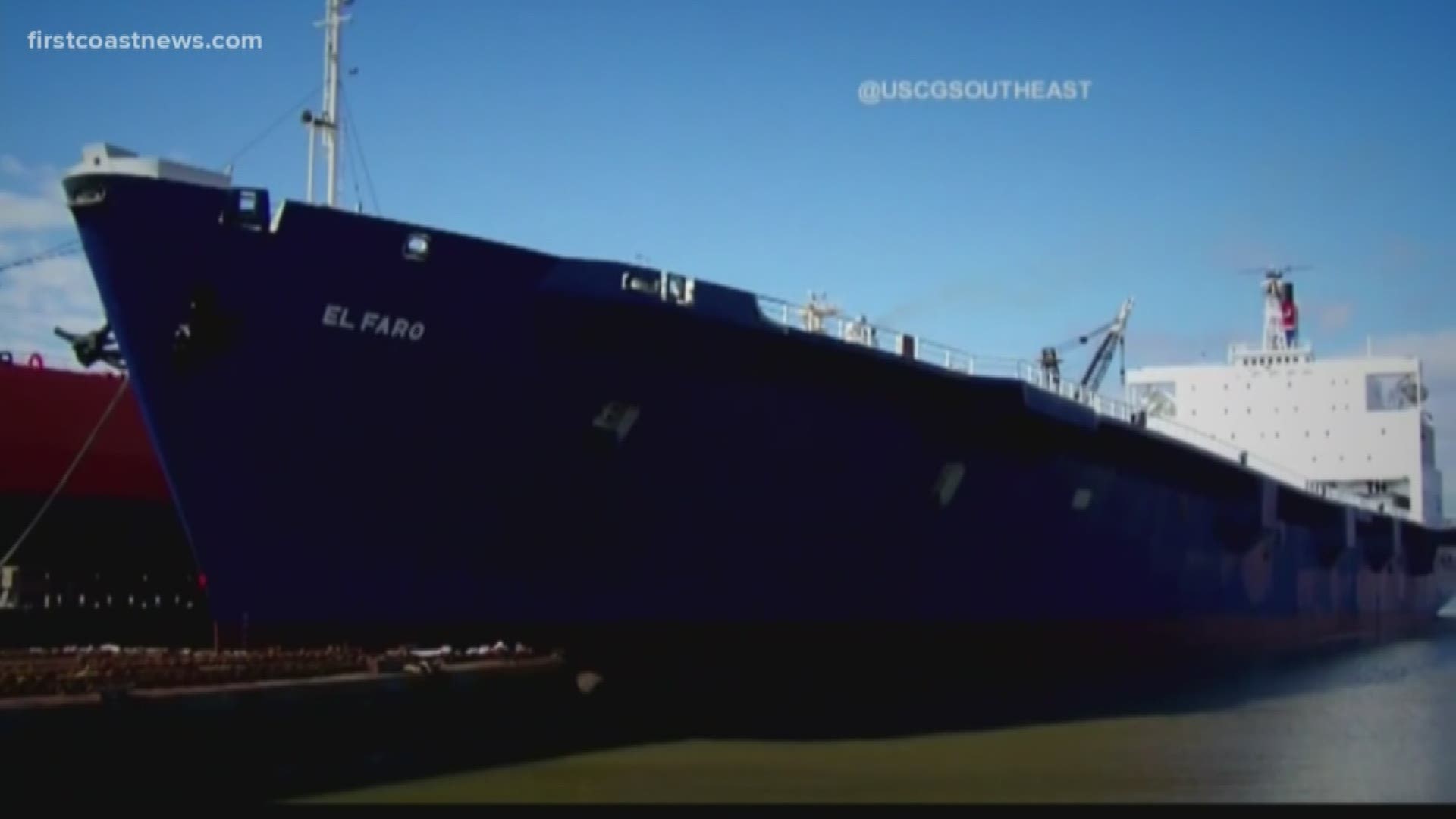JACKSONVILLE, Fla — A local politician who usually agrees with the Trump Administration is sounding the alarm about something the president is reportedly considering.
“I think any ‘America First’ strategy would want to include the Jones Act,” Republican U.S. Congressman John Rutherford, who represents Florida’s fourth district, told First Coast News on Monday.
The 99-year-old Jones Act mandates that maritime transportation of goods between U.S. ports be done by American-built, flagged, and staffed ships. According to a Bloomberg report, the White House has been under pressure from U.S. energy producers and Puerto Rico to implement waivers or consider doing away with the Jones Act entirely. The contention is that Puerto Rico couldn’t receive shipments of even U.S.-produced liquid natural gas (LNG) delivered by foreign-flagged vessels during the crucial aftermath of Hurricane Maria in 2017.
“They had no vehicles to transport the goods,” Rutherford asserted,” and so, that was the real problem. It was not getting the goods to the island, it was getting the goods off the dock to the interior of the island.”
Rutherford’s concern is that the Jones Act protects maritime commerce – a key driver of the economy on the First Coast – and to a degree, national security.
“It creates an American maritime fleet which is available when national security needs require a surge in our sealift capability that the ready reserve force fleet simply cannot meet at this point,” Rutherford said.
Jacksonville maritime attorney Rod Sullivan concurred.
“It’s a protectionist measure but it’s also a measure that helps national defense,” he said. “It’s always necessary, when we are going to a foreign nation to engage in war, to transport our goods to that place, and US ships are believed to be more reliable than foreign ships.”
But Sullivan appeared less strident than Rutherford about the potential for waivers of the Jones Act, as long as the exceptions are very specific.
“Make it specific to LNG and it's okay,” Sullivan said. “Extend it to any other industry, and the U.S. maritime industry is going to lose.”
Sullivan said allowing LNG shipments between U.S. ports has become a practical necessity in recent years, that the Jones Act thwarts.
“You need a specialized LNG ship, and those are quarter-billion-dollar ships. We currently don't have a US-flagged LNG ship of large size.”
Which, some say, forces U.S. cities to import foreign-produced products such as LNG on non U.S.-flagged ships, instead of buying the same goods produced in America.
Longtime maritime commerce consultant Don Frost of Connecticut told First Coast News "The Act exports U.S. manufacturing jobs by making the delivered cost of interstate sales of U.S. goods more expensive than importing the identical products from offshore delivered by foreign flag ships”.
Frost contended that the issue has become a political and is the subject of inaccurate rhetoric.
"We may lose some in the short run until the yards realize they have to compete, but in the long run they will gain a lot of ship repair yard jobs,” Frost asserted.
Rutherford sees it differently, saying Monday “Just in northeast Florida, the Jones Act represents 9,000 jobs, a $2 billion economic impact.
“We could have China delivering gas between US ports and San Juan, and I think that would just be a travesty.”
Although the Trump White House hasn’t made a firm declaration regarding the Jones Act yet, Sullivan clarified that abolishing the Act requires Congressional approval, the president can grant waivers.
“The choice is to use a foreign LNG ship from a foreign port, transporting foreign natural gas to Puerto Rico, or grant the waiver,” Sullivan offered. “And if you grant the waiver, then American natural gas goes to Puerto Rico, but it goes on a foreign flagged ship.”
A separate contention against the Jones Act is that it contributed to the El Faro tragedy in 2015, which killed 33 crewmates.
“One of the reasons the El Faro sank is because it was so old,” Sullivan said. “One of the reasons that it was so old is because no other ship could come in to that market unless it was manufactured in the United States. So, the El Faro sinking may in fact be a direct result of the Jones Act.
Both Sullivan and Rutherford seemed to agree about the importance of keeping the Jones Act intact overall.
“Look at all the ships that come in and out [of Jacksonville] that have Crowley and Tote written on the sides, and imagine them not leaving from Jacksonville anymore,” Sullivan said. “Think about all the cargo handlers, the people who run the hustlers, and the people who are longshoremen on those ships. All those jobs would go away.”
“I think it would be devastating if we were to waive the Jones Act,” Rutherford said.
But in the end, Sullivan conceded that some flexibility might not just be acceptable, but necessary.
“U.S. maritime cannot currently satisfy this market,” he said, “so they don’t really lose. Puerto Rico loses because it can’t get natural gas, U.S. energy producers lose because they can’t get U.S. natural gas to Puerto Rico.
“And then the last area is the environment. Natural gas produces only half the CO2 that heavy oil does, so consequently burning natural gas is better for the environment from a global climate change perspective. So, when you add all those things in the mix,” Sullivan concluded, “granting the waiver is probably the right thing to do.”

